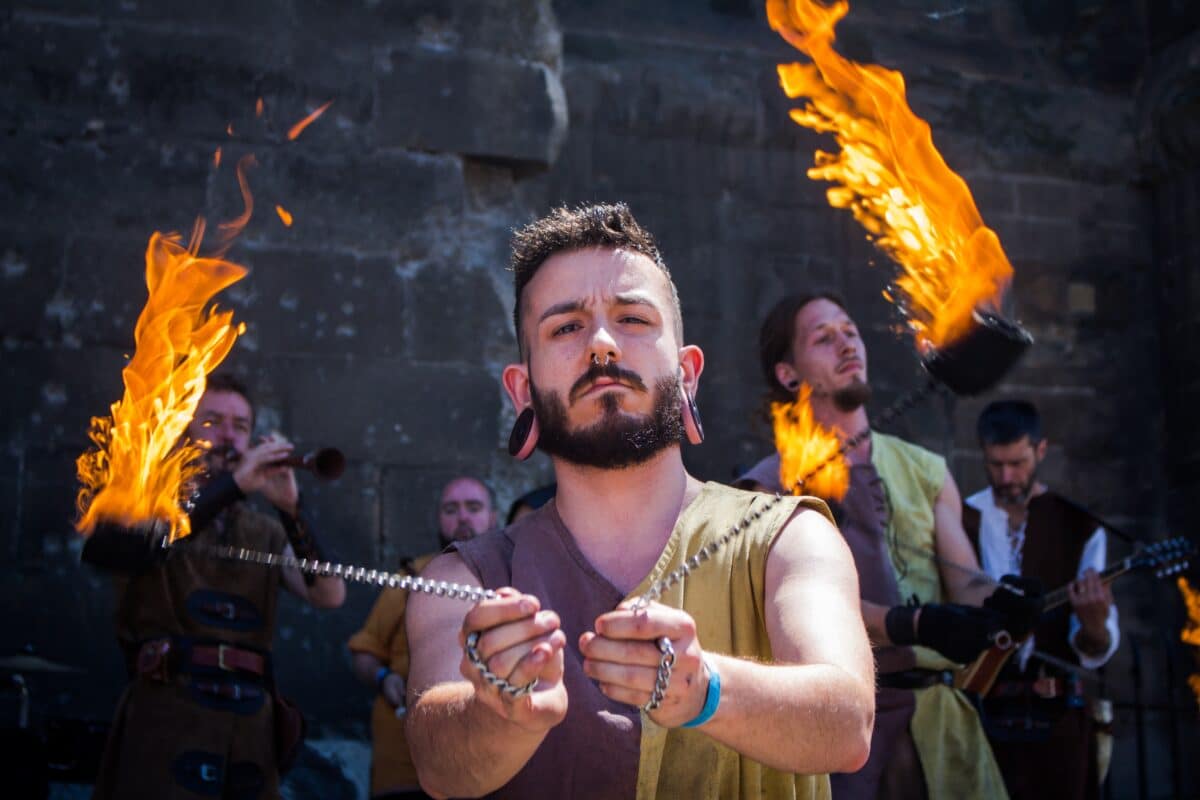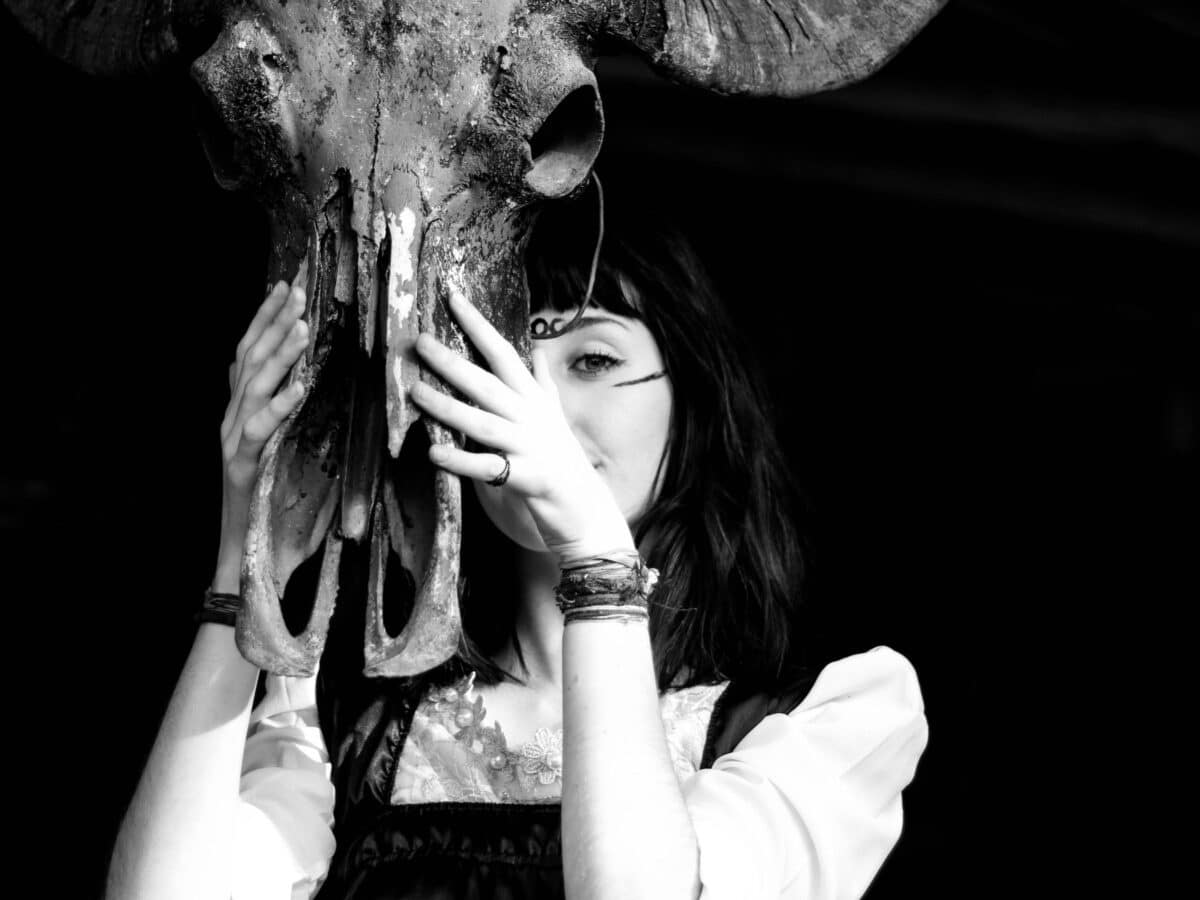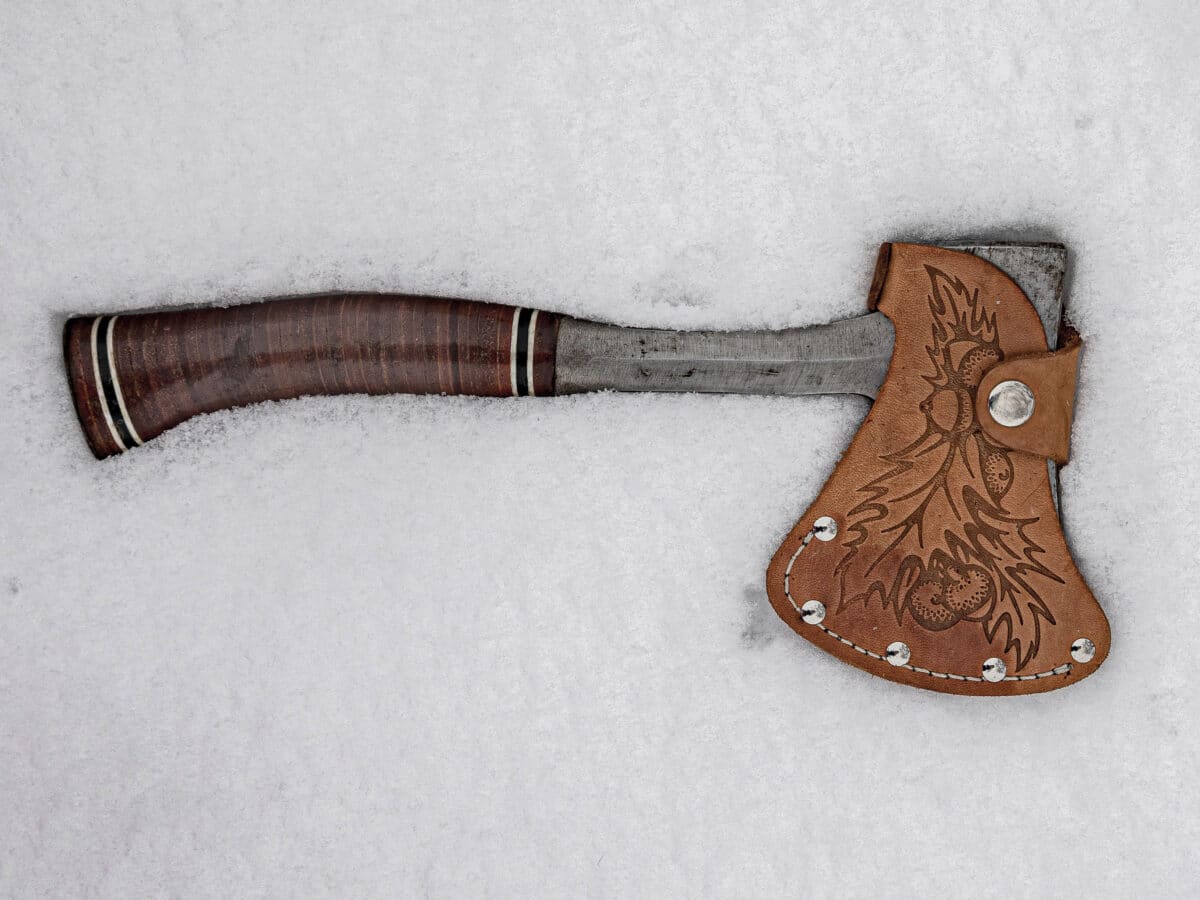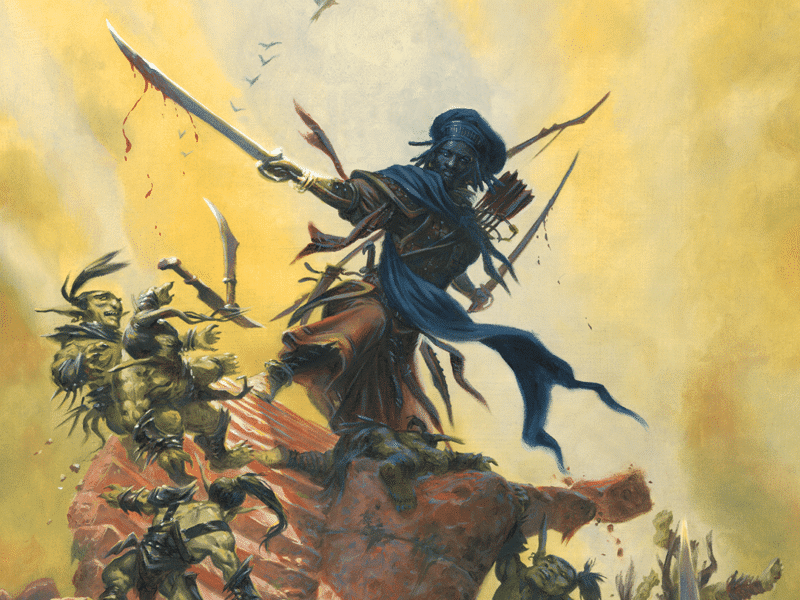Welcome to a new article in this series of tips on how to make the most of various classes in Dungeons & Dragons! This time, I would like to…actually, if you’re living or staying in a moderately sized town in any D&D campaign, just open the window. Go on, trust me!
Great, well done! Now look outside. Ignore that noisy street vendor, the neighing warhorses at the stables and the roaring barbarian who’s stumbling down the street.
In fact, just close your eyes, and listen. There, do you hear it? The enchanting singing from that inn a few houses away, accompanied by the obnoxiously beautiful lute-playing? It’s as if the words are wrapping you in a warm, tender and sugary embrace, isn’t it?
That’s no wonder – because that’s no ordinary sailor’s mournful rhyme or soldier’s marching tune that you’re enjoying. What you’re hearing is the unparalleled performance of a professional bard. And from what I can tell, it’s an experienced one, too. Just note that incredible timbre, the heavenly trickle of notes pouring from their fingers as they pluck at the strings.
Look now, I am about to list a few tips here below about why bards are such fun to play (and why they’re fantastic to have in the group even if you’re now playing one). But once we’re done here, how about you and I head down for a few pints of mead so that we can get a better look at the fellow? Excellent, I knew you’d agree! On to the list!

All right – the drinks and songs are waiting down at the inn, so let’s dive right into the reasons why your next D&D character probably should be a bard!
Those notes!
For most D&D bards, music – played, sung, whistled or otherwise – is the bread and butter of their trade. As such, their lives can be assumed to revolve around songs and how to best perform them. If you’re a player who’s even remotely interested in music, this class is perfect for getting truly nitty-gritty with your collection of tunes and instruments. A good reason for doing this is that it adds a lot of flavour to your character and their actions very easily. Just as Rand in Robert Jordan’s Wheel of the Time novels uses a range of different moves when fighting with his sword, and often thinks or speaks the names of these moves as he performs them, you can have a register of titles ready for different situations for your bard. These titles can then substitute the names of the spells you cast using your instrument as a spell focus.
For example, if you’re cornered by a band of thugs when walking home from yet another night pleasing the crowd and the town’s busiest inn, and decide to cast sleep on your assailants, you can simply say out loud that your character gets their flute out and plays Hush Now, Rowdy Ruffians – a favourite among children in your hometown – and thereby casts the desired spell. Or if a raging manticore is bearing down on your adventuring party, you can tell the DM that your character happily strikes up the cheerful tune Don’t Come Bother Me Now, Fearsome Flying Foe (which also works well for making soldiers tip well in army encampments) and casts the spell fear.
Should you happen to be a musician yourself, then you can pull out all the stops and go totally overboard with this approach. Don’t hesitate to actually write the songs, or just a few lines from them, and keep the musical notes along with your character sheet so that you can wave them around when it’s your turn to shine (because a bard always shines – even when their spells or other performances fail miserably!). You can even take it to the next level by singing or playing the snippets as they happen – a surefire way to raise the mood around a D&D table!
Those lines, rhymes and cartwheels!
Whilebards are generally (and stereotypically) about music in D&D, and songs usually are performed using a device – the class’s spell focus is an instrument, after all – one doesn’t have to spend much time or effort thinking about all the other skills and methods of entertainment that a bard can dedicate themselves to outside the world of strings and drums. For example, there are probably quite a few members of this class who join a theatre, where they have the luxury of basking in the attention of huge crowds every evening of the week. Given that acting is the foundation of embodying a gallery of different characters while conveying a story, bards are probably quite at home on a stage and in a play.
There are also those who busy themselves with storytelling for far smaller audiences, such as greatly learned people who know a library’s worth of lore by heart and can recite epic tales in front of a handful of enraptured farmers by the hearth in a small village. Such people can live modest lives far from the tumultuous revelry of packed inns in huge cities, but still possess tremendous knowledge. Widening these ideas even further, there are bards who at heart are shy poets and keep volumes of carefully penned verse that they (sometimes maybe reluctantly) share with those who are considered worthy to hear them. Perhaps your bard might be dedicated to the art of spoken word, and stop at street corners to deliver a rousing speech that might be strongly political or merely full of energy.
In addition, there are modes of performances outside those that involve words! A bard might be specialised in physical (wordless) comedy and have an arsenal of hilarious acts that can be put on display to make strangers giddy with glee. A close relative to this skill is classic acrobatics, an area that many bards have excellent skills in. Typical acts can include tightrope walking, daring somersaults, juggling burning items, climbing up and down ropes while doing stupefying tricks, and so on. In fact, if you take a look at old-fashioned circuses and what kind of spectacles that they used to offer, you’re likely to find plenty of inspiration for an acrobatically inclined bard.
Lastly, a word on your outfit: make it matter – because if there’s one member of a group of adventurers who needs to pay attention to their clothes, it’s the bard. The druid and the ranger might get away with green-dyed outdoor clothes, as such are both traditional and practical for their tasks. A fighter, cleric or paladin will have their actual clothes obscured by layers of armour on any given day, so they’re rarely concerned about such matters. Then there are the spellcasters, who for some reason tend to have a habit of wearing flashy and colourful robes at all times (never a good idea in the wilderness, but we all know how mages think about clothes – the brighter, the better!). I should mention that some wizards, warlocks or sorcerers dress entirely in black, which I admit is stylish, but often also grounds for concern as their mindsets and alignments can turn out to be a bit problematic in the long run.
But the bard must wear only their best and, if possible, nothing else. There’s a simple explanation for this: let’s say that you’ve been on the road for days and reach a hamlet late one evening. There’s a palisade around the village that’s been constructed due to bandits who carry out nocturnal raids in the area. It’s mid-winter, and the night is looking like it is going to be exceedingly cold. Your group is exhausted, a few members might even be wounded, and you’d very much like to enter the village to see if the inn has any spare rooms for the night. Maybe there might even be a bowl of hot soup and a jug of spiced wine on the horizon. The only thing that stands between you entering the village or spending another night in the woods getting snowed on are two guards, who don’t seem to be overly impressed by the unexpected appearance of a handful of mud-stained, bandaged and pale-faced adventurers. The newcomers might be bandits in disguise, for all the guards know!
Cue the bard, who can step forward and dazzle the guards with an eloquent speech, and explain at length why there are a thousand brilliant reasons why they and their friends should be granted access to the village and its surely fabulous inn. Such a rescue can make the difference between a solid long rest or another level of exhaustion, but it’s tricky to pull off if you look like someone who’s slept in a hold in the ground for two weeks. So ensure that your backpack holds a spare set of nice-looking garments – and that the backpack never goes missing!
An acceptable deviation from this rule of thumb is that some bards dress in ill-fitting and tattered clothes to conceal their true profession, or as part of preparing for a grand reveal at a later point!
The spells (and the rest)!
Normally, I’m much more concerned with features and abilities that make classes and creatures fun to play and meet rather than how to optimise a character or wring the most damage-per-second from their statistics. That said, D&D is a game in which (most of the time) conflict is inevitable, so let’s get technical for a moment – after all, there’s no point in having a winning smile and a perfectly tuned instrument if you end up in the belly of a dragon or the cauldron of a troll.
One of the most (and easily) forgotten advantages of the bards is that they’re full casters. By that I mean that they get lots of spells, they start to cast them early in their career, and there are tons of useful ones on their list. In other words, it’s not unfair to say that when it comes to flinging sizzling spells left and right, the bard rivals the wizard, sorcerer and warlock when it comes to arcane output. Sure, a bard might not have access to the most destructive or spectacularly weird spells in D&D, and they might not be able to set hostile armies running or reverse time – those massively impactful spells are reserved for real mages. Still, at ninth level, bards become able to use magic that can turn battles or even campaigns on their heads! A cleverly cast foresight or divination can wreak havoc with a DM’s plans, mass polymorph can take a whole group of dangerous monsters out of action (and give rise to much laughter, depending on how creative the caster is!), power word heal is a real lifesaver when a fight hasn’t gone as planned, and prismatic wall is a dazzling blessing on a messy battlefield.
So the bard’s spells pack a punch – and don’t let anyone tell you differently!
You’re the face of the party
Now, here’s the not-so-grand reveal: a bard is far more than a mere spellcaster! Every party – by which I mean “group of budding heroes,” we’ll get to the other kind of parties soon! – needs someone who can use a silvered tongue rather than a honed blade to pave the way to a successfully completed quest, and that is the bard’s job.
Sure, there are others who do decently in this area. The elf is annoyingly handsome, and so the paladin is consistently well-spoken. The rugged ranger has their own kind of charm, and the rogue is admittedly good at talking their way out of a tight spot. The enigmatic warlock, the cocky sorcerer and even the cryptic mage can have a certain kind of winning presence in some social situations, and they can often use handy arcane means to reinforce their charisma and persuasiveness. The halfling has an infuriatingly winning smile, to be sure, and the fighter has muscles and cheekbones enough to do most of their talking.
But when it comes to really important moments that involve dealing with other people? Please, just stand back. It’s time for you, the bard, to step in and handle the talking, the haggling, the contract-wrangling and the coin-changing. The reason is simple: it’s because you know people. They’re your target in any situation, be it for enthralling them or rendering them unconscious. Even without the aid of spells, you’re skilled in countless ways of making those who can see and hear you laugh, cry, gasp, cheer, tremble with fear, or go dumbstruck with awe. Add your magically enhanced abilities into the mix, and your finely honed talents can halt an advancing group of hostile monsters in their step and make them marvel at your music, or catch the attention of crowds and thereby let your companions sneak unseen into the enemies’ castle. In D&D, a bard can convince the most stubborn merchant to give you a phenomenal deal on that enchanted weapon on display in their shop, or talk their way past a pair of adversely minded guards outside the town’s best inn with the ease of someone picking up their daily bread from the baker.
Speaking of parties and you being the given face of them, your skillset is not limited to adventuring parties! On the contrary, you are – or at least you should be! – the centrepiece of all parties, including those that are lively feasts rather than groups of individuals. If you’re playing a bard, make sure that if there’s a celebration, be it a merry song in a tiny roadside tavern or a formal banquet with hundreds of guests hosted by the realm’s Queen and King, you have a natural role to play in providing entertainment. If it happens to be the case that there’s already another provider of song and dance who has been brought in by the organisers – well, who doesn’t like a spot of competition? In fact, even your rivals for the evening don’t like to have their thunder stolen, who really cares? Just whip out your lute and show them who the real bard in the room is!
Those were a few thoughts on how a bard character can be played to maximum effect in D&D – for laughs and enjoyment, that is, not monster-murdering or dungeon-delving. There are other classes who are more concerned with such tedious tasks! Meanwhile, you’re there for the music and the merriment (and the money!).







